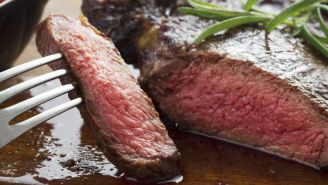Updated on June 24, 2022.
Adding olive oil to your daily diet may lower your risk for cardiovascular disease and offer other health benefits, according to research. Analyses of the Nurses’ Health Study and the Health Professionals Follow-Up Study—two of the largest U.S. studies that looked at risk factors for chronic diseases—found that higher levels of olive oil consumption were associated with 19 percent lower risk of death from cardiovascular disease. The study, published in the Journal of the American College of Cardiology in 2022, included roughly 60,000 female and 32,000 male health professionals.
The study also found that people who ate more than 1 ½ teaspoons per day of olive oil had 19 percent lower risk of death over the course of 28 years, compared to those who did not eat olive oil. Substituting 2 teaspoons per day of olive oil for other less-healthy fats like margarine, butter, mayonnaise, or dairy fat was associated with 8 to 34 percent lower risk of death.
Many other studies have shown that eating olive oil can boost your heart health and decrease your risk for related problems like diabetes and metabolic syndrome. But what is it about olive oil that makes it so good for you?
Understanding the route to heart trouble
You may not think much about your endothelium, or even know what or where it is. But it’s a crucial part of your heart health and overall well-being.
The endothelium is the thin layer of cells that lines your blood vessels, and it does critical things for your body. It helps to control how your blood vessels dilate and constrict, allowing oxygen and nutrients to flow to every part of your body. Endothelial cells also play a role in blood clotting and inflammation, both important because when these processes are out of balance, they can contribute to the development of blocked arteries and heart disease.
Food as medicine for better blood vessels
More and more research is showing that diet can affect your endothelium. Olive oil is rich in polyunsaturated fatty acids (PUFAs) and antioxidants like phytosterols and phenolics. According to a review of studies published in the journal Nutrients in 2022, the combination of these nutrients may explain olive oil’s potential to help fend off hardening of the arteries and heart disease.
Studies in humans have shown that consuming olive oil is associated with better endothelial functioning, lower levels of inflammation, and lower levels of artery stiffness. Olive oil consumption is also associated with lower blood pressure, better insulin sensitivity, and reduction in blood clots. Olive oil may also lower your LDL (aka “bad” cholesterol) and increase your HDL (aka “good” cholesterol), all of which is good news for your heart.
By adopting an overall heart-healthy diet high in vegetables and fruits, whole grains, low-fat proteins and antioxidant-rich fats like olive oil, you’ll be giving your endothelial cells some TLC so that they can do their job in making your blood less "sticky" (less likely to clot) and helping it flow more easily through your blood vessels.







